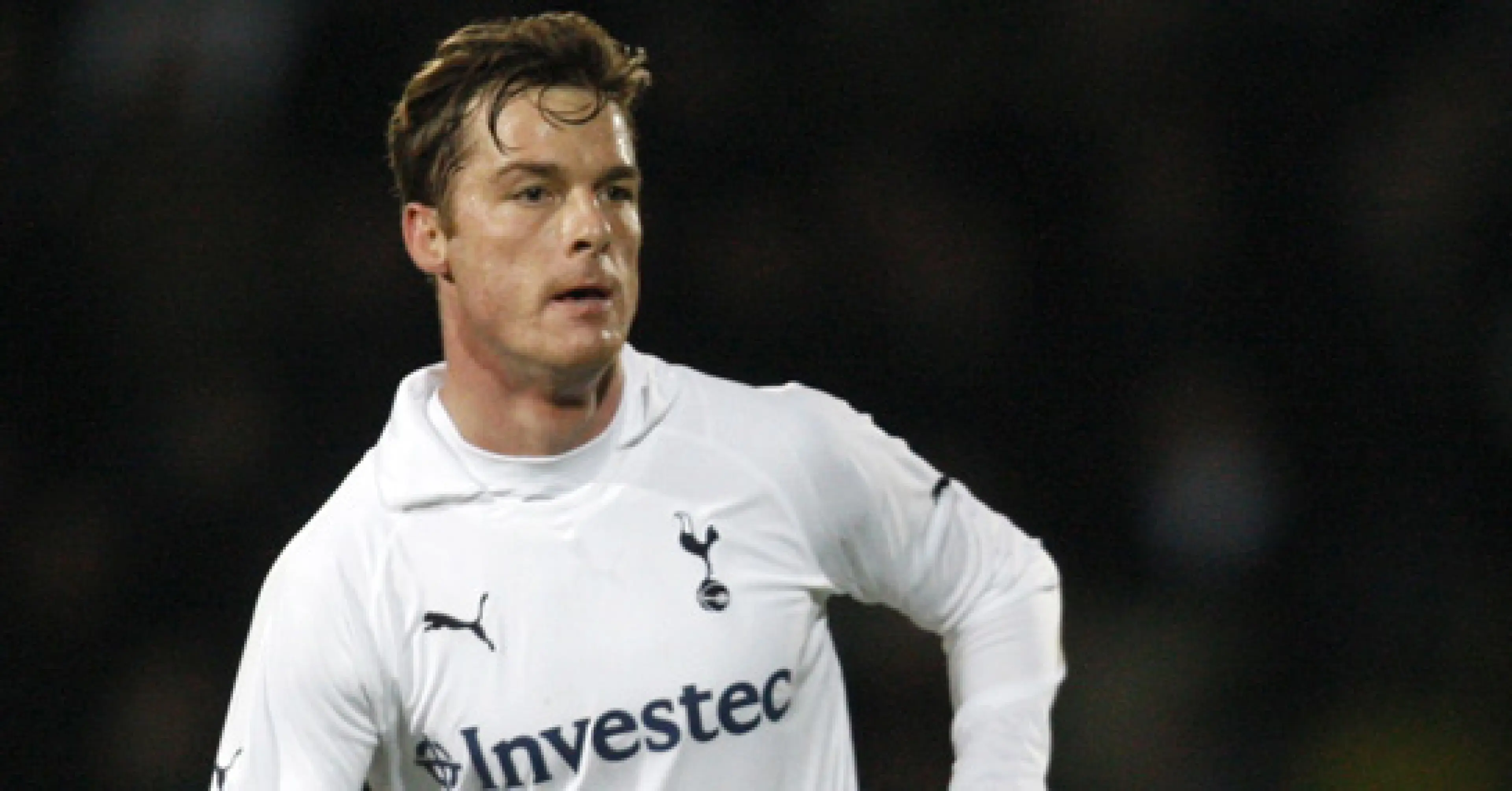Scott Parker lifts lid on 12-game stint in Belgium, talks next potential move & gives thoughts on The Streets and his viral video
Published:
- “The cold hard facts are that we lost two games out of 10 in the league. Things didn’t go well in the Champions League against a good side in Benfica. But in the league, we lost two, won two and drew the rest. Of course, I’d have liked to have won more of those games, but I wasn’t given sufficient time to implement my ideas.“
- [Managing Club Brugge] “For one reason or another, that was all cut very short, after 10 league games, and in that regard it’s difficult to take too much away from and it goes without saying that it was a big disappointment.“
- “The cold hard facts are that we lost two games out of 10 in the league. Things didn’t go well in the Champions League against a good side in Benfica. But in the league, we lost two, won two and drew the rest. Of course, I’d have liked to have won more of those games, but I wasn’t given sufficient time to implement my ideas.“
- “Things move very quickly in football; I lost my job after four games of the season in the Premier League with Bournemouth, then moved to Brugge, where I was now competing in the best competition in world football: the Champions League.“
- “Football has been a large part of my life and all I really know. I have enjoyed my time away from the game and it has given me time to reflect and learn. Even though I have not physically worked, I feel this year has been vital for me in terms of learning and becoming a better coach.“
- “I don’t remember who the first person was, to make me aware of those videos where the Streets music is played over my words, but safe to say a few have since and for the record, I do like The Streets, they’re very good.“
- “I’m sure other managers can relate to the interview I gave after the play-off final. As managers, we all work tirelessly and in that moment, at the culmination of the uniquely long and challenging COVID season, that was simply me articulating some of the sacrifices you make along that journey.“
I wasn’t given sufficient time to implement my ideas in Belgium
I was out of work at the time, having lost my job at Bournemouth and within three or four months, Club Brugge came along and were really keen to appoint me. I was relishing the opportunity to go to a different country, a different league, to develop myself and to share my experience as both a coach and a player, and how I saw things.
For one reason or another, that was all cut very short, after 10 league games, and in that regard it’s difficult to take too much away from and it goes without saying that it was a big disappointment.
You become hardened to the world you’re in when you’re a football manager. You understand the dynamics; maybe they’re not always fair, but that’s football. The cold hard facts are that we lost two games out of 10 in the league. Things didn’t go well in the Champions League against a good side in Benfica. But in the league, we lost two, won two and drew the rest. Of course, I’d have liked to have won more of those games, but I wasn’t given sufficient time to implement my ideas.
Prior to going, I didn’t really know anyone out there, aside of course from the coaching staff I took with me who I was very close to in the time we were there. I had Denis Odoi, who I’d previously worked with at Fulham, so he was a player I was familiar with, going into that squad.
Moving countries, putting kids into different schools… there’s so much more that goes on, beyond the football side of things
Moving out to another country, as far as my family were concerned, wasn’t an issue and I had their full support as I’ve always done. I moved up to Newcastle as a player, moving my young family at the time to a new city, away from everything we knew in London. And likewise, it was a case of doing the same with Brugge, but I always had the full support of my family.
I moved to Brugge, initially on my own, and was living at the training ground. Then after around four or five weeks, my wife came over with our youngest, and we spent the next four or five weeks there, together, before we left. These are the challenges your families face, and they’re the biggest ones. When you’re in it, as a manager, you’re dealing with all of the stresses that come with that role and you don’t really see anything else. But the ones who really struggle in certain moments can be the families. Whether that’s just moving to different countries, different environments, putting kids into different schools, there’s so much more that goes on, beyond the football side of things.
From being sacked four games into the season with Bournemouth, to managing in the Champions League…
Things move very quickly in football; I lost my job after four games of the season in the Premier League with Bournemouth, then moved to Brugge, where I was now competing in the best competition in world football: the Champions League. We came up against a very good side in Benfica, and while they were experiences which didn’t go my way, I still see them as incredible challenges and opportunities to be placed in.
There were fine margins in that first leg against Benfica, and a couple of mistakes probably cost us. We had a goal disallowed at 0-0 for a minor offside and I felt that we were very competitive in that first game. In the second game, it’s fair to say that wasn’t the case and we got beat by a very good side and it was well deserved. But the experience of being in that arena, and being around that calibre of competition, was very good for me.
This year out has been vital for me in terms of becoming a better coach…
I’ve had an incredible time in football and been very lucky; I’ve had 20-odd years playing high-level football. I left home at 14 years of age, went up to national school at Lilleshall and probably at that moment felt like I started work. I was training every day, came back from Lilleshall, went straight into Charlton and from that point it’s been a part of my life ever since.
This is the first time in my career, in my lifetime, where I’ve been able to stop. I’ve had a couple of Christmases off and been able to spend some time with the kids. I’ve really enjoyed it, I’ve recharged the batteries, been doing a lot of studying, a lot of reflecting on where I’ve gone wrong, where I can improve, what I’ve done very well, what doesn’t need changing. Opportunities have come about, but what’s key for me is aligning myself and picking the right opportunity which comes up next.
Football has been a large part of my life and all I really know. I have enjoyed my time away from the game and it has given me time to reflect and learn. Even though I have not physically worked, I feel this year has been vital for me in terms of learning and becoming a better coach. I am looking forward to the next opportunity when it comes.
The one thing that players who’ve worked under me will say is that I’m very honest. I’m very open and honest in the sense that when I take over at a football club, I have a real passion for helping individuals, for helping teams, and for improving players. I’d like to think that every single player who has ever worked for me, feels that love and the honesty, and that help that I bring.
When I’m not doing things right, I want someone to tell me, and the same when I am doing things right. Throughout my two jobs in England, with Bournemouth and Fulham, where I was developing teams for a longer period of time, I’d like to think that every single player would know and understand where I’m coming from.
I do like The Streets; they’re very good!
I don’t remember who the first person was, to make me aware of those videos where the Streets music is played over my words, but safe to say a few have since and for the record, I do like The Streets, they’re very good.
I’m sure other managers can relate to the interview I gave after the play-off final. As managers, we all work tirelessly and in that moment, at the culmination of the uniquely long and challenging COVID season, that was simply me articulating some of the sacrifices you make along that journey and saying that at this moment in time, all I want to do is get home and spend some time with my family, relax, and not worry about football; not just worry about the next game.
As a football manager, you win a football match, and you enjoy it for two or three hours on a Saturday night. But before you know it, you’re thinking about the next game, and all of a sudden that next game becomes the most important. It’s cliche, but it’s the cold, hard truth. You’re constantly fearful, thinking about where the team are, what we need to do in the next game. That’s what you’re always thinking about.








